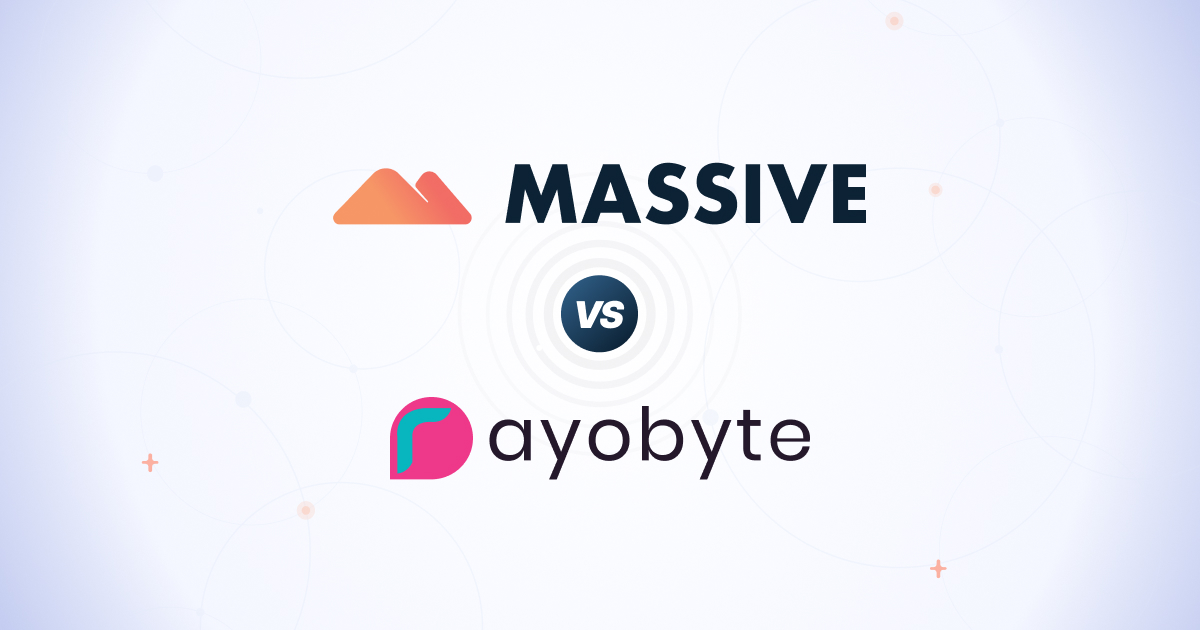TL;DR
A proxy pool is a collection of multiple proxy servers that automatically rotate IP addresses for your internet requests, providing enhanced anonymity, reduced blocking risk, and improved reliability. Datacenter pools offer speed and affordability ($2-10/GB) for basic operations, while residential pools provide authenticity and higher success rates ($15-50/GB) for sophisticated platforms. Start with 100-500 IPs, implement 30-60 second rotation intervals, and expect 90%+ success rates on most websites. Most beginners should start with datacenter proxies for learning, then upgrade to residential for production operations requiring stealth.
Understanding proxy pools is essential for anyone involved in web scraping, data collection, or online privacy. This comprehensive guide breaks down everything you need to know to get started.
What is a Proxy Pool? (The Simple Explanation)
Think of a proxy pool like a fleet of delivery trucks for your internet requests. Instead of using just one truck (proxy) that might get stuck in traffic or break down, you have dozens or hundreds of trucks ready to deliver your requests to websites.
A proxy pool is a collection of multiple proxy servers working together to handle your internet traffic. When you send a request to visit a website, the pool automatically selects one of its available proxies to make that request on your behalf, using a different IP address each time.
Why Not Just Use One Proxy?
Using a single proxy is like having only one delivery truck:
- If it breaks down, your entire operation stops
- If it gets blocked by a website, you can't access that site
- It becomes easily recognizable and trackable
- It creates a single point of failure
A proxy pool solves all these problems by providing redundancy, rotation, and reliability.
How Proxy Pools Work: A Step-by-Step Breakdown
The Basic Process
- You send a request: Your application wants to visit Amazon.com
- Pool receives request: The proxy pool management system gets your request
- IP selection: The system automatically picks an available proxy IP from the pool
- Request forwarding: Your request goes to Amazon using the selected proxy's IP address
- Response delivery: Amazon sends the data back through the proxy to you
- Automatic rotation: Next request uses a different IP from the pool
Smart Rotation Strategies
Modern proxy pools don't just randomly pick IPs. They use intelligent selection based on:
- Request timing: Rotating proxies can switch every few minutes or after a set number of requests
- Website-specific rules: Using certain IPs only for specific sites
- Geographic requirements: Selecting IPs from specific countries or cities
- Performance history: Prioritizing IPs with better success rates
Types of Proxy Pools: Understanding Your Options
Datacenter Proxy Pools
What they are: IPs sourced from data centers and cloud providers
Characteristics:
- Speed: Very fast (typically 100-1000 Mbps)
- Reliability: Consistent uptime and performance
- Cost: Most affordable option ($2-10 per GB)
- Detection: More easily identified as proxies
Best for:
- High-volume operations requiring speed
- Testing and development environments
- General web browsing and basic scraping
- Applications where detection isn't a major concern
Example use case: A startup monitoring competitor prices across 50 e-commerce sites daily. They need fast, reliable access but aren't dealing with sophisticated anti-bot systems.
Residential Proxy Pools
What they are: Residential proxies use IPs from real home internet connections of actual users
Characteristics:
- Authenticity: Appear as genuine residential users
- Detection resistance: Much harder for websites to identify
- Speed: Moderate (typically 10-50 Mbps)
- Cost: Higher investment ($15-50 per GB)
Best for:
- Social media monitoring and management
- E-commerce price tracking on protected sites
- Market research requiring authentic user appearance
- Accessing geo-restricted content
Example use case: A marketing agency managing social media accounts for clients across different regions. They need IPs that appear as real users to avoid account suspensions. Understanding how to use residential proxies effectively becomes crucial for maintaining account authenticity.
Mobile Proxy Pools
What they are: Mobile proxies use IPs from mobile network providers (4G/5G connections)
Characteristics:
- Mobile authenticity: Perfect for mobile-first platforms
- High success rates: Excellent for social media and mobile apps
- Dynamic nature: IPs change frequently (every few minutes)
- Premium pricing: Most expensive option ($50-100 per GB)
Best for:
- Mobile app testing and development
- Social media platforms with mobile-heavy user bases
- Location-based services requiring mobile IP signatures
- Situations requiring the highest level of authenticity
Key Benefits of Using Proxy Pools
1. Enhanced Anonymity and Privacy
How it works: Each request uses a different IP address, making it nearly impossible to track your real identity or location.
Real-world impact:
- Prevents websites from building behavioral profiles
- Protects against targeted advertising and tracking
- Maintains privacy during sensitive research
- Enables anonymous competitive intelligence gathering
2. Reduced Risk of Blocking and Bans
The problem: Websites monitor request patterns and block suspicious IP addresses
The solution: Pool rotation distributes requests across hundreds or thousands of IPs
Practical example:
- Single IP: 1,000 requests from one address = immediate block
- Proxy pool: 1,000 requests across 100 IPs = 10 requests per IP = normal user behavior
3. Improved Reliability and Uptime
Redundancy protection: If 10% of your pool goes offline, 90% continues working
Automatic failover: System instantly switches to working IPs when others fail
Consistent performance: No single point of failure disrupts your operations
4. Geographic Flexibility
Global reach: Access content as if you're browsing from different countries
Local insights: Gather region-specific data for market research
Compliance benefits: Meet data residency requirements for different markets
Common Use Cases for Beginners
Web Scraping and Data Collection
What it involves: Automatically extracting information from websites
Why proxy pools help: Prevents IP bans while scaling data collection
Beginner-friendly targets: Public directories, news sites, product catalogs
Getting started checklist:
- Start with 50-100 IPs in your target geographic region
- Implement 30-60 second delays between requests
- Monitor success rates and adjust rotation frequency
- Begin with less protected sites before tackling major platforms
Price Monitoring and Comparison
Business value: Track competitor pricing for strategic advantage
Technical requirements: Regular, systematic data collection across multiple sites
Proxy pool benefits: Avoid rate limiting and maintain consistent access
Implementation approach:
- Daily price checks across 5-10 competitor sites
- Rotate IPs every 20-30 requests per domain
- Schedule checks during low-traffic hours (2-6 AM local time)
- Store historical data for trend analysis
Social Media Management
Use case: Managing multiple accounts across different platforms
Challenge: Platforms actively detect and block automated behavior
Solution: Residential proxy pools with consistent IP assignment per account
Best practices:
- Assign specific IPs to specific accounts (sticky sessions)
- Match IP geographic location to account's claimed location
- Maintain realistic posting schedules and interaction patterns
- Use mobile IPs for mobile-first platforms (Instagram, TikTok)
Market Research and Competitive Intelligence
Objective: Gather insights about competitors, market trends, and consumer behavior
Requirements: Access to geo-restricted content and unbiased search results
Proxy benefits: View content as local users see it, avoid personalized results
Research methodology:
- Use IPs from target market locations
- Rotate IPs to avoid search result personalization
- Collect data during local peak hours for accuracy
- Compare results across different geographic regions
Getting Started: Your First Proxy Pool Setup
Step 1: Define Your Requirements
Questions to answer:
- What websites will you be accessing?
- How many requests per day/hour do you need?
- Which geographic regions are important?
- What's your budget for proxy services?
- How technically complex can your setup be?
Requirement examples:
- Basic monitoring: 500 requests/day, US-only, $50/month budget
- E-commerce research: 5,000 requests/day, US + EU, $200/month budget
- Social media management: 1,000 requests/day, global, mobile-heavy
Step 2: Choose Your Proxy Type
Decision framework:
Choose Datacenter if:
- Speed is your primary concern
- You're monitoring less sophisticated websites
- Budget is tight
- You're just starting out and learning
Choose Residential if:
- You need to appear as real users
- You're accessing protected or sophisticated platforms
- Success rates matter more than cost
- You're doing social media or e-commerce work
Massive offers high-quality residential proxies that provide superior performance and reliability for these exact use cases.
Choose Mobile if:
- You're working with mobile-first platforms
- You need the highest level of authenticity
- Budget allows for premium services
- You're managing social media accounts
Step 3: Select a Reliable Provider
Evaluation criteria:
Pool size and diversity:
- Minimum 10,000 IPs for basic operations
- Geographic coverage matching your needs
- ISP diversity (no single provider dominating)
Performance metrics:
- Success rates above 90% for your target sites
- Response times under 3 seconds
- Uptime guarantees of 99%+
Technical features:
- Easy API integration
- Rotation controls (timing, frequency)
- Geographic targeting capabilities
- Authentication methods (IP whitelist, username/password)
Support and reliability:
- 24/7 technical support
- Comprehensive documentation
- Money-back guarantee or trial period
- Positive user reviews and testimonials
Step 4: Implementation Best Practices
Start small and scale up:
- Begin with 100-500 IPs to test your setup
- Monitor performance for 1-2 weeks
- Gradually increase pool size based on needs
- Track costs and ROI carefully
Implement proper rotation:
Basic rotation example:
E-commerce monitoring: Rotate every 10-20 requestsSocial media: Sticky sessions for 30-60 minutesGeneral scraping: Rotate every 5-10 requestsSearch engine queries: Rotate after each search
Monitor and optimize:
- Track success rates by website and IP segment
- Identify and remove underperforming IPs
- Adjust rotation timing based on target site behavior
- Keep detailed logs for troubleshooting
Step 5: Essential Tools and Integrations
Programming languages and libraries:
- Python:
requestslibrary with session management - JavaScript/Node.js:
axiosorrequestlibraries - PHP:
cURLwith proxy configuration - Java:
HttpClientwith proxy support
Management tools:
- Proxy rotation libraries: Handle automatic IP switching
- Monitoring dashboards: Track performance and usage
- Rate limiting tools: Prevent overuse and blocks
- Analytics platforms: Measure ROI and success rates
Understanding Costs and ROI
Pricing Models Explained
Pay-per-GB model:
- Most common for residential proxies
- Typical range: $15-50 per GB
- Best for: Variable usage patterns
Pay-per-IP model:
- Common for datacenter proxies
- Typical range: $1-5 per IP per month
- Best for: Consistent, predictable usage
Unlimited plans:
- Fixed monthly fee for unlimited usage
- Typical range: $100-1000+ per month
- Best for: High-volume operations
Calculating Your Budget
Usage estimation formula:
Monthly data usage = (Requests per day × Average response size × 30 days)
Example: 1,000 requests/day × 100KB average × 30 days = 3GB/month At $25/GB = $75/month for proxy costs
Total cost of ownership includes:
- Proxy service fees (60-80% of total cost)
- Development and integration time
- Monitoring and management tools
- Infrastructure and hosting costs
ROI Considerations
Value drivers:
- Time savings: Automated data collection vs manual research
- Competitive advantage: Earlier access to market intelligence
- Risk reduction: Avoiding IP bans and service disruptions
- Scale benefits: Handling more data than humanly possible
Success metrics to track:
- Data collection success rate (target: 95%+)
- Cost per successful data point collected
- Time from data need to insights delivery
- Business decisions enabled by collected data
Common Challenges and Solutions
Challenge 1: Getting Blocked Despite Using Proxies
Common causes:
- Too many requests from the same proxy
- Unrealistic browsing patterns
- Poor proxy quality or reputation
- Insufficient rotation frequency
Solutions:
- Implement longer delays between requests (30-60 seconds)
- Add randomization to request timing
- Include realistic headers and user agents
- Switch to higher-quality residential proxies
- Reduce request frequency per IP
Challenge 2: Slow Performance
Typical issues:
- Overloaded proxy servers
- Geographic distance between proxy and target
- Network congestion during peak hours
- Poorly configured rotation logic
Optimization strategies:
- Choose proxies closer to target servers
- Implement concurrent processing with multiple IPs
- Schedule heavy operations during off-peak hours
- Upgrade to faster proxy tiers or datacenter options
- Optimize your code for parallel processing
Challenge 3: High Costs
Cost drivers:
- Inefficient usage patterns
- Over-provisioning proxy resources
- Using premium proxies for basic tasks
- Poor success rates leading to retries
Cost reduction tactics:
- Start with datacenter proxies for testing
- Implement smart caching to reduce requests
- Use tiered proxy approach (datacenter + residential)
- Monitor and eliminate unused or underperforming IPs
- Negotiate volume discounts with providers
Challenge 4: Technical Complexity
Common struggles:
- Complex API integration
- Session management across multiple IPs
- Handling errors and failovers
- Monitoring and alerting setup
Simplification approaches:
- Start with provider's ready-made SDKs
- Use proxy management services that handle rotation
- Implement basic error handling before advanced features
- Leverage existing monitoring tools and dashboards
Legal and Ethical Considerations
Understanding the Legal Landscape
Generally legal activities:
- Accessing publicly available information
- Monitoring your own properties and competitors
- Academic and research purposes
- Compliance testing and security research
Potential legal risks:
- Violating website terms of service
- Accessing private or protected information
- Copyright infringement through data collection
- Bypassing technical protection measures
Best practices for legal compliance:
- Review target websites' robots.txt and terms of service
- Respect rate limits and access restrictions
- Avoid collecting personal or sensitive information
- Consult legal counsel for commercial operations
- Maintain detailed logs for accountability
Ethical Guidelines
Responsible proxy usage:
- Don't overload target servers with excessive requests
- Respect website owners' bandwidth and resources
- Avoid collecting data that could harm individuals or businesses
- Be transparent about your data collection when required
- Consider the impact of your activities on the broader internet ecosystem
Fair compensation principles:
- When using residential proxies, ensure peer networks provide fair compensation
- Support providers with ethical business practices
- Avoid services that exploit user connections without proper consent
- Choose providers with transparent user agreements
Troubleshooting Guide
Diagnostic Checklist
When requests are failing:
- Check proxy server status and connectivity
- Verify authentication credentials
- Test with different IPs from your pool
- Examine response codes and error messages
- Review request headers and formatting
- Check for IP reputation issues
When performance is poor:
- Measure response times across different proxies
- Test during different times of day
- Compare geographic regions for speed differences
- Monitor concurrent request handling
- Check for network congestion or routing issues
When costs are higher than expected:
- Audit actual usage vs estimated needs
- Review success rates and retry logic
- Identify data-heavy operations that could be optimized
- Compare pricing across different providers
- Evaluate whether you need premium features
Next Steps: Advancing Your Proxy Skills
Intermediate Techniques to Explore
Session management:
- Implementing sticky sessions for account-based operations
- Managing cookies and authentication across requests
- Handling JavaScript-rendered content with headless browsers
Advanced rotation strategies:
- Machine learning-based IP selection
- Target-specific rotation rules
- Performance-based IP scoring and selection
For organizations managing large-scale operations, understanding residential proxy pool management becomes essential for maintaining consistent performance and compliance.
Integration patterns:
- Database integration for historical tracking
- API development for team-wide proxy access
- Monitoring and alerting system setup
Recommended Learning Path
Month 1: Basic implementation
- Set up your first proxy pool
- Implement simple rotation logic
- Monitor basic success metrics
Month 2: Optimization and scaling
- Fine-tune rotation strategies
- Implement error handling and retries
- Add performance monitoring
Month 3: Advanced features
- Explore geographic targeting
- Implement session persistence
- Add cost optimization measures
Month 4+: Specialization
- Focus on your specific use cases
- Explore advanced provider features
- Consider custom development for unique needs
Conclusion: Building Your Proxy Pool Foundation
Proxy pools represent a fundamental shift from single-point internet access to distributed, resilient systems that enable modern data collection and web automation. Understanding the basics covered in this guide provides the foundation for more advanced techniques and specialized applications.
The key to success with proxy pools lies in starting simple, measuring results, and gradually increasing complexity as your needs grow. Whether you're monitoring competitor prices, conducting market research, or managing social media accounts, the principles outlined here will help you build reliable, cost-effective operations.
Remember that proxy pools are tools that amplify your capabilities—the quality of your results depends on how thoughtfully you implement and manage them. Focus on understanding your specific requirements, choosing appropriate proxy types, and implementing proper rotation strategies. With this foundation, you'll be well-prepared to tackle more advanced proxy pool management techniques as your operations scale.
As you implement these strategies, keep detailed records of what works for your specific use cases. The proxy landscape continues evolving, and the organizations that treat proxy management as a core competency rather than a simple technical implementation will maintain competitive advantages in an increasingly sophisticated digital environment.

I am the co-founder & CEO of Massive. In addition to working on startups, I am a musician, athlete, mentor, event host, and volunteer.
Customer reviews
Frequently Asked Question
What exactly is a proxy pool and how is it different from a single proxy?
+
A proxy pool is a managed collection of multiple proxy servers (typically hundreds to thousands) that work together to handle your internet requests. Unlike a single proxy that uses one IP address, a proxy pool automatically rotates between different IPs for each request or session. This provides redundancy (if one proxy fails, others continue working), reduces blocking risk (websites can't easily detect patterns), and offers better performance through load distribution.
Which type of proxy pool should beginners start with?
+
Start with datacenter proxy pools for learning and basic operations. They're faster (100-1000 Mbps), more affordable ($2-10/GB), and easier to manage. Once you understand the basics and need to access more sophisticated platforms (social media, protected e-commerce sites), upgrade to residential proxy pools ($15-50/GB) which appear as real home internet connections and have higher success rates on protected websites.
How many proxies do I need in my pool?
+
For beginners: 50-200 proxies are sufficient for basic web scraping and monitoring. For growing operations: 500-2,000 proxies handle most medium-scale needs (up to 10,000 requests daily). For enterprise: 5,000+ proxies support high-volume operations. Remember: pool quality matters more than size—a well-managed 500-IP pool often outperforms a poorly managed 5,000-IP pool.
How much should I expect to spend on proxy pools?
+
Budget tier: $50-150/month for datacenter pools (basic scraping, development)
Standard tier: $200-500/month for mixed datacenter/residential (e-commerce monitoring, market research)
Premium tier: $500-2000+/month for high-quality residential pools (social media management, protected site access)
Factor in 20-30% additional costs for tools, development time, and infrastructure.
How do I avoid getting blocked when using proxy pools?
+
Key strategies: Implement 30-60 second delays between requests, rotate IPs every 10-20 requests per domain, use realistic user agents and headers, respect robots.txt files, and avoid sending too many requests from any single IP. Success rates above 90% indicate healthy rotation patterns, while rates below 80% suggest you need longer delays or better proxies.
Can I use proxy pools for social media management?
+
Yes, but use residential or mobile proxy pools specifically. Assign consistent IPs to specific accounts (sticky sessions), match proxy geographic locations to account locations, maintain realistic posting schedules, and use mobile IPs for mobile-first platforms like Instagram and TikTok. Never use datacenter proxies for social media—they're easily detected and will result in account suspensions.
Is it legal to use proxy pools?
+
Using proxy pools is generally legal for accessing publicly available information, monitoring competitors, research purposes, and testing your own systems. However, you must respect website terms of service, avoid accessing private/protected information, and comply with local laws. Always review target websites' robots.txt files and terms of service before large-scale operations.
What are the most common beginner mistakes with proxy pools?
+
Top mistakes: Using too few proxies for the request volume, rotating too frequently (causing session breaks), using datacenter proxies for sophisticated platforms, not implementing proper delays between requests, ignoring success rate monitoring, and choosing providers based solely on price rather than quality and reliability.
How do I measure if my proxy pool is working effectively?
+
Key metrics to track: Success rate by target website (aim for 90%+ on most sites), average response time (under 3 seconds), CAPTCHA frequency (should be rare), IP ban incidents (should be minimal), and cost per successful data point collected. Set up monitoring dashboards to track these metrics automatically and adjust your rotation strategy based on performance data.
Can I build my own proxy pool instead of buying one?
+
Building your own proxy pool requires significant technical expertise, infrastructure investment, and ongoing maintenance. You'll need to source IPs, manage server infrastructure, handle IP reputation monitoring, implement rotation logic, and ensure compliance. For beginners, purchasing from established providers is recommended—focus on learning to use proxy pools effectively before considering building your own infrastructure.







